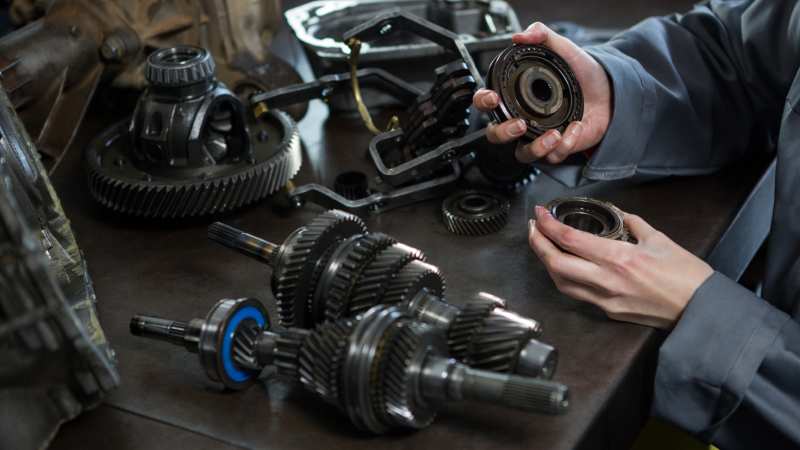Replacing an engine is a serious decision that affects performance, cost, and long-term reliability. Many owners turn to remanufactured options to balance affordability with dependable quality. Let’s explore seven key factors to review before investing in a remanufactured engine.
1. Quality of the Rebuild Process
The first detail to confirm is how remanufactured engines are rebuilt and tested. Reputable companies replace worn components with new or reconditioned parts that meet original equipment standards. Processes such as machining, precision fitting, and pressure testing ensure the engine will operate reliably.
A reliable provider will document each stage of the rebuild. This transparency gives buyers confidence that critical parts like pistons, bearings, and gaskets meet industry requirements. When done properly, the rebuild process extends engine life to match or even exceed factory standards. Always ask for specifics about procedures before making a purchase.
2. Source of Replacement Parts
The integrity of an engine depends heavily on the parts used during the rebuild. High-quality components guarantee smoother operation and a longer service life. Cheap or low-grade substitutes can lead to early failures and increased repair costs. This is why the source of replacement parts should be verified upfront.
Providers that partner with established suppliers often achieve more consistent results. They can guarantee that valves, seals, and crankshafts meet the manufacturer’s original specifications. In contrast, companies that cut corners on parts expose buyers to unnecessary risk. Always confirm that the engine you choose has components built to last.
Signs of Reliable Parts Supply
- Verified partnerships with reputable manufacturers
- Clear documentation of materials used
- Warranty coverage on individual parts
- Consistent performance reviews from customers
These signals help distinguish strong suppliers from less reliable options.
3. Tests and Inspection Standards
Every engine should undergo rigorous inspection before release. This includes pressure tests, leak detection, and measurements for tolerance levels. Engines that skip this process may appear functional at first but fail under load. Inspection guarantees that the rebuild delivers both safety and durability.
Buyers should ask about the exact tests performed. A thorough checklist covers everything from cylinder compression to oil flow. Certified facilities often follow strict guidelines that align with industry benchmarks. Engines tested under such protocols give greater confidence for long-term performance.
4. Warranty and Support
A solid warranty reflects confidence in the product. Engines with clear coverage protect owners against unexpected defects or early breakdowns. Limited or vague warranty terms, on the other hand, may signal questionable quality. Always examine the fine print before making a commitment.
Reputable providers offer guidance on installation, maintenance, and troubleshooting. Access to this support can prevent costly mistakes and keep downtime to a minimum. Buyers should value both warranty length and the quality of customer service offered.
5. Compatibility with Vehicle Requirements
Even the highest-quality engine is of little use if it does not fit your vehicle. Confirming compatibility with the make, model, and year ensures a smooth installation. Small variations in design can affect mounting points, electronics, and cooling systems. Skipping this step can result in wasted time and money.
Manufacturers or dealers often provide detailed compatibility charts. Asking for documentation before the purchase avoids costly errors. In cases of doubt, consult with a professional mechanic to verify the fit. Correct alignment from the start supports efficient installation and reliable performance.
6. Reputation of the Supplier
The supplier’s track record is as important as the product itself. Companies with long-standing experience and positive reviews demonstrate reliability. A strong reputation reflects consistent quality and satisfied customers. Checking feedback and references helps narrow down the best providers.
Look for certifications, industry memberships, or recognition from trade organizations. These signals indicate that a supplier follows best practices. In addition, local reputation can carry weight if the company has served the same community for decades. Trust in the supplier builds trust in the engine.
7. Cost and Value
Price often influences the final decision. A slightly higher investment in a reliable engine saves money in the long run. Cheaper options may hide flaws or come with weaker warranties. Balancing cost and value ensures the smartest decision.
Engines that last longer, require fewer repairs, and use fuel efficiently pay for themselves over time. By comparing total value instead of upfront cost alone, owners make wiser choices. The right balance protects both budgets and vehicles. Well-built remanufactured engines deliver this balance by combining affordability with dependable performance.
Buyers must evaluate the rebuild process, replacement parts, testing standards, warranty, compatibility, supplier reputation, and cost-value balance. Each of these factors influences performance, durability, and overall value. Careful review ensures an investment that keeps vehicles running strong for years while protecting both reliability and budgets.

